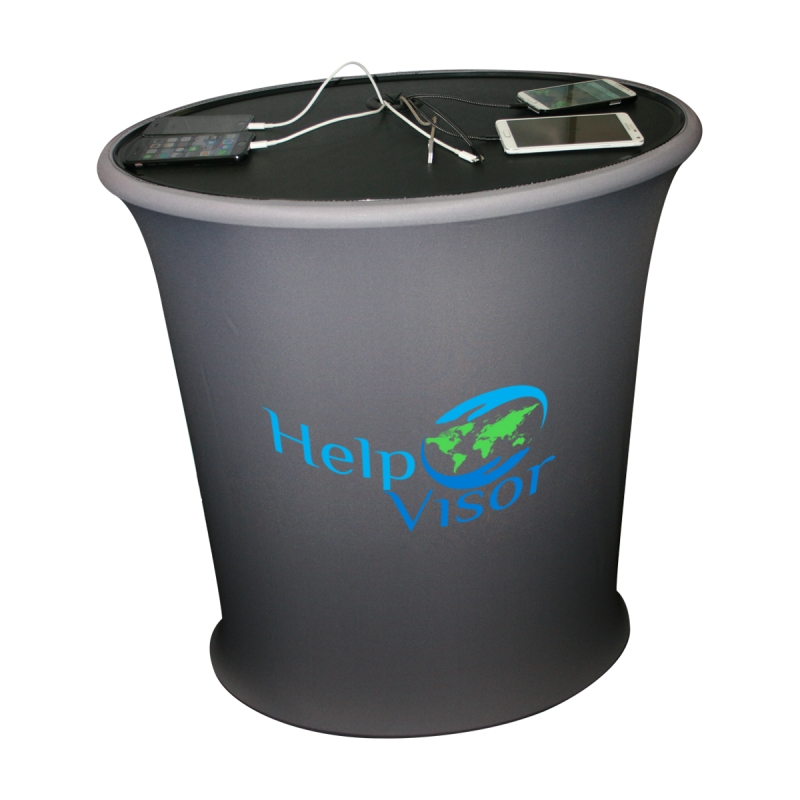Marketing is an important part of any business, whether you own a tiny mom and pop doughnut shop or run a huge international business with thousands of employees. While the latter will often have employees--sometimes even full divisions--devoted to marketing, when it comes to small businesses, marketing is usually handled on a much smaller scale, shouldered largely by the owner and key employees.

Given that many small business owners are not professionally trained in the art of marketing, it can be difficult to know how to best spend marketing dollars and time. To help remove some of the mystery from the process, we've created a guide to 8 common marketing mistakes, so that you can avoid them and streamline the route to marketing success for your business.

You don't "believe" in marketing.
Rarely does a business "sell itself". To ensure that customers are aware of your offerings or services, it requires a certain level of putting your business out there. This is where marketing comes in the picture.Marketing can span all sorts of ways to make people aware of your business, from exhibiting a booth in
trade shows to investing in creative
outdoor signage to creating
branded furniture. It also includes online advertising and marketing, such as on social media.
You don't have a website.
Many a small business believes that they are "not big enough" to warrant a website, or have the reason that they don't need one because they are a small, local business that doesn't need a presence on the world wide web. This couldn't be further from the truth.Having a website is more important than ever in the information age. People don't really use the yellow pages anymore; they hit up a search engine to seek out the business or service they desire. If you don't have a website, your chances of being found are going to be extremely limited. The best news is that having a website doesn't have to be complex! It's possible to simply have a Facebook page act as your website or to create a simple and basic landing page for your business.
You don't set goals.
Before you can market your business successfully, you have to identify and set goals for yourself. What are your goals for your business? Is it to make $500 a month? Or is it to create a chain of stores that will open throughout the nation?If your goals are nebulous, like "attain success", you may lack direction. By setting clear, well-defined goals, you'll be able to set milestones so that you can reach those very specific goals.
 You don't have a marketing plan.
You don't have a marketing plan.
Many small businesses not only don't have a marketing plan; they don't even know what a marketing plan is. In a nutshell, a marketing plan is your blueprint of advertising or marketing efforts for a given period of time; usually, a quarterly or yearly basis. The marketing plan describes the company's marketing goals and then takes it one step further by defining how advertising materials, online marketing, trade shows, and other marketing efforts will help attain these goals.For instance, you might want to attract more summer tourists to your retail store. In that case, your marketing plan might include investing in more indoor signage to emphasize how your products are local and unique, or it might involve creating a
custom outdoor kit for displaying at concerts or outdoor events during the summer.
You're not evaluating the competition.
Your competitors can help give you valuable insight about what you could do better in terms of marketing.Say, for instance, that you own an ice cream shop. What is the frozen yogurt shop down the street doing to successfully market themselves? While you never want to copy another person's efforts, they can inform and inspire your own marketing plans. For instance, if you see that your competitor down the block is having great success bringing customers in by displaying a
custom game outside, perhaps you could explore some sort of engaging outdoor marketing campaign, too.
 You don't set yourself apart.
You don't set yourself apart.
Oscar Wilde is credited as having said "be yourself; everybody else is taken". This is true for your business, too. Setting yourself apart is part of the power of successful marketing. You need to emphasize what makes your business special, and what makes it worth people's time and money.For instance, say you run a kayak rental business. Chances are, you're not the only one. But your business might be the only kayak rental business in town where all of the employees are CPR-certified. By marketing yourself as an extremely safety-forward company, you'll differentiate yourself from the rest and draw positive attention to your business.
You haven't defined your target audience.
For marketing to really be effective, you need to figure out who you are marketing to, first and foremost. Do you know who is buying your product or service?This might be a clear "yes" if you work directly with consumers; however, if you sell wholesale and rarely interact with the final consumer, this might be a bit trickier. It's important to get out there and see who is buying your product, either via connecting with the end consumer via social media, in event settings with a display or a
branded mascot, or by conducting focus groups. Knowing who your target audience is can help inform how you decide to spend your marketing dollars.
You don't have a balanced marketing budget.
Are you spending all of your money on internet advertising and don't have enough money to create outdoor signage for your brick and mortar location? That is not a balanced marketing budget.You need to make sure that you don't put all of your eggs in one basket. Explore a balanced marketing budget that allows for creating signage, trade show displays, and internet marketing--don't just spend all your money in one place.
Conclusion: Marketing your small business can help improve sales and help you reach business goals. By learning about these common marketing mistakes, you'll be better positioned to avoid common pitfalls which can keep you from meeting your goals. By taking the time to figure out a smart, well thought out marketing plan for your business, you'll be helping your business succeed, which helps improve not only your work atmosphere but quality of life for you and your employees.
What methods of marketing do you use for your small business?
 Given that many small business owners are not professionally trained in the art of marketing, it can be difficult to know how to best spend marketing dollars and time. To help remove some of the mystery from the process, we've created a guide to 8 common marketing mistakes, so that you can avoid them and streamline the route to marketing success for your business.
Given that many small business owners are not professionally trained in the art of marketing, it can be difficult to know how to best spend marketing dollars and time. To help remove some of the mystery from the process, we've created a guide to 8 common marketing mistakes, so that you can avoid them and streamline the route to marketing success for your business.

 Given that many small business owners are not professionally trained in the art of marketing, it can be difficult to know how to best spend marketing dollars and time. To help remove some of the mystery from the process, we've created a guide to 8 common marketing mistakes, so that you can avoid them and streamline the route to marketing success for your business.
Given that many small business owners are not professionally trained in the art of marketing, it can be difficult to know how to best spend marketing dollars and time. To help remove some of the mystery from the process, we've created a guide to 8 common marketing mistakes, so that you can avoid them and streamline the route to marketing success for your business.


















 You don't have a marketing plan.
You don't have a marketing plan. You don't set yourself apart.
You don't set yourself apart.